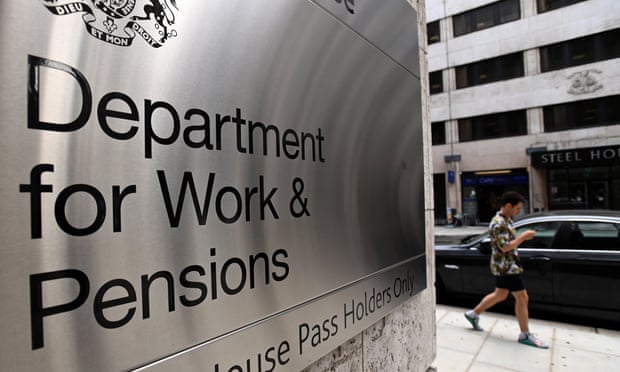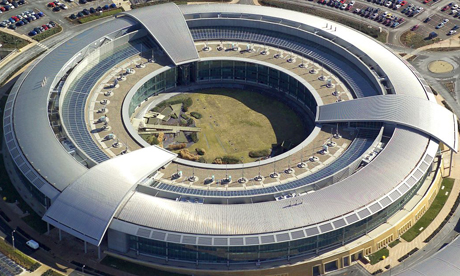Original article republished from Open Democracy under a Creative Commons Attribution-NonCommercial 4.0 International licence.
Exclusive: Government refuses to answer questions about its surveillance of immigration lawyers
Jenna Corderoy 24 April 2023, 10.00pm
The government has refused to answer questions about its “monitoring” of human rights lawyers – saying revealing the extent of its surveillance is not in the public interest.
In February, immigration minister Robert Jenrick admitted during a parliamentary debate that the Home Office is “monitoring the activities” of “a small number of legal practitioners”, after claiming that “human rights lawyers abuse and exploit our laws”.
Using Freedom of Information (FOI) laws, openDemocracy asked the Home Office how many legal practitioners it is monitoring, the nature of the monitoring and when it began. We also asked which unit within the department is carrying out the surveillance or if it has been outsourced to private firms.
The Home Office has now rejected the request, saying it is not in the public interest to disclose any of the information. openDemocracy has appealed against this decision.
Paul Heron, senior solicitor at the Public Interest Law Centre, told openDemocracy: “Government ministers spying on lawyers sounds like something from an authoritarian state. It is a direct threat to the rule of law and undermines the principles of justice and fairness.
“State surveillance of lawyers, and indeed any worker, is a clear violation of human rights and civil liberties and undermines the very foundation of a free and democratic society.”
Heron added: “The Home Office’s refusal to respond openly, adequately and indeed at all to the FOI request from openDemocracy regarding the monitoring strategy of lawyers by the Home Office should be a real concern, indicating not only a fundamental lack of transparency but a fundamental lack of accountability.”
State surveillance of lawyers, and indeed any worker, is a clear violation of human rights and civil liberties
Jon Baines, a senior data protection specialist at law firm Mishcon de Reya, shared Heron’s concerns.
Speaking to openDemocracy, Baines said: “The secrecy shown by the Home Office is regrettable, particularly as there is a distinct lack of any meaningful analysis of the public interest factors weighing in favour of disclosure.
“Secret monitoring of lawyers by the state has very serious connotations, and if the information really is exempt from disclosure, it is incumbent on the Home Office to give more detail and more justification for what is an inherently oppressive activity.”
The Home Office’s silence comes ahead of the return of the Illegal Migration Bill to the Commons this week, for its third and final reading before moving to the Lords. On Monday, the Equality and Human Rights Commission warned that the bill “risks breaching international obligations to protect human rights and exposing individuals to serious harm”.
The government claims the legislation will deter people from crossing the English Channel in small boats.
In February, Tory MP Bill Wiggin used a parliamentary session about a violent incident outside a hotel used to temporarily house asylum seekers in Knowsley, Liverpool to ask about legislating to stop such crossings.
Jenrick replied: “This is one of the most litigious areas of public life. It is an area where, I am afraid, human rights lawyers abuse and exploit our laws.”
The Home Office must give more detail and more justification for what is an inherently oppressive activity
Later in the debate, Liberal Democrat MP Alistair Carmichael asked: “The minister told us a few minutes ago that part of the problem here is human rights lawyers who abuse and exploit our laws… could the minister tell the House how many solicitors, advocates and barristers have been reported by the Home Office in the last 12 months to the regulatory authorities?”
Jenrick did not answer the question or provide figures. Instead, he said: “We are monitoring the activities, as it so happens, of a small number of legal practitioners, but it is not appropriate for me to discuss that here.”
At the time, Jenrick’s comments prompted dismay and concern among lawyers.
In its FOI refusal, the Home Office stated that a disclosure would “inhibit free and frank analysis in the future, and the loss of frankness and candour would damage the quality of risk assessments and deliberation and lead to poorer decision-making”.
Explaining its decision to withhold the information, the department said: “The Home Office has a process that allows caseworkers to check companies and individuals are qualified to provide immigration advice and reporting mechanisms that allows us to escalate any issues to regulatory bodies.”
Original article republished from Open Democracy under a Creative Commons Attribution-NonCommercial 4.0 International licence.


